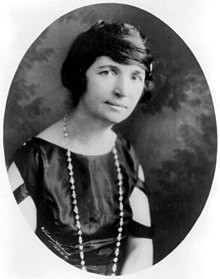Matilda Joslyn Gage
 What we know of the past is what has been written down and recorded. Written history has been a recent phenomena due to the limited records of written language. A huge problem with recorded history is that many things deemed "unimportant" at the time were never written down and therefore were lost. One such thing that was not considered important enough to record, until relatively recently, was the history of women. One women who has not been lost to history, although nearly was because her life and ideas were a threat to the forces of oppression, is Matilda Joslyn Gage.
What we know of the past is what has been written down and recorded. Written history has been a recent phenomena due to the limited records of written language. A huge problem with recorded history is that many things deemed "unimportant" at the time were never written down and therefore were lost. One such thing that was not considered important enough to record, until relatively recently, was the history of women. One women who has not been lost to history, although nearly was because her life and ideas were a threat to the forces of oppression, is Matilda Joslyn Gage.
Matilda Joslyn Gage was born on March 24, 1826, in Cicero, New York. She was born an only child. Gage was raised in a household that was dedicated to antislavery and was part of the Underground Railroad. In fact, when Gage married and moved to Fayetteville, New York, her own home was part of the Underground Railway. Although she had both family and antislavery responsibilities Gage became deeply involved in the movement for women's rights. Gage was a radical feminist for her time and mainly focused on the issues of the role of social and religious institutions as well as civil concerns. Her writing focused on significant accomplishments of women in invention, military affairs, and in history.
Although Gage was unable to attend the very first Women's Rights Convention in 1848, she was a speaker at the 1852 National Convention for Women's Rights in Syracuse, New York. In her speech she said:
"Although our country makes great professions in regard to general liberty, yet the right to particular liberty, natural equality, and personal independence, of two great portions of this country, is treated, from custom, with the greatest contempt; and color in the one instance, and sex in the other, are brought as reasons why they should be so derided; and the mere mention of such, natural rights is frowned upon, as tending to promote sedition and anarchy."
This is an example of how Gage formed her arguments for both abolition and women's rights. She was saying that women are subjects, rather than citizens. She is also saying that those held in slavery and women are being denied liberty, equality, and independence. She goes on to say that even mentioning the issues of natural rights for women and slaves is akin to rebellion and chaos.
Gage was also a huge advocate of women's right to vote. Her ideas for voting were considered radical because she did not base the right to vote off of the fact that women were mothers and wives, but because voting is a natural human right. Gage, along with Susan B. Anthony and Elizabeth Cady Stanton, was a founding member of the National Woman Suffrage Association (NWSA) and served in various offices of that organization. She was a member for twenty years until the increasingly conservative NWSA distanced themselves from her radical views about the church because they did not want to alienate conservative Christian women. This did not stop Gage in her fight for women's suffrage. She decided to form her own group, The Women's National Liberal Union (WNLU), which reflected her belief that the church was largely male supremacist teachings. Her book, Women, Church, and State (1893), elaborates on this idea.
Gage was a women of many beliefs. She fought not only for women's rights, but for the abolition of slavery. Her house was part of the Underground Railroad even though it put her and her family at risk. Gage stayed true to her beliefs despite alienation from her peers and others. Throughout her life Gage did not call attention to herself, she drew focus only to the issues of human rights. I find Gage to be an inspiring women because, although she is not widely known, she was a women of courage and integrity. She, along with Elizabeth Cady Stanton and Susan B. Anthony wrote the arguments, inspired the passions and organized the political action of the 19th century woman suffrage movement in the United States. Hers is a story of a women who dared to defy the male chauvinistic theologies that dominated in her time, a story of a women who fought for human rights, a story of a women who championed against the misogynistic views of the church. Her story, is our story.
"There is a word sweeter than Mother, Home or Heaven, that word is Liberty."
Works Cited
Gage, Matilda. National Women's Rights Convention, 1852, Syracuse, NY. Address.
Group, Breakthrough Design. Matilda Joslyn Gage Foundation. Matilda Joslyn Gage Foundation RSS, www.matildajoslyngage.org/.

















